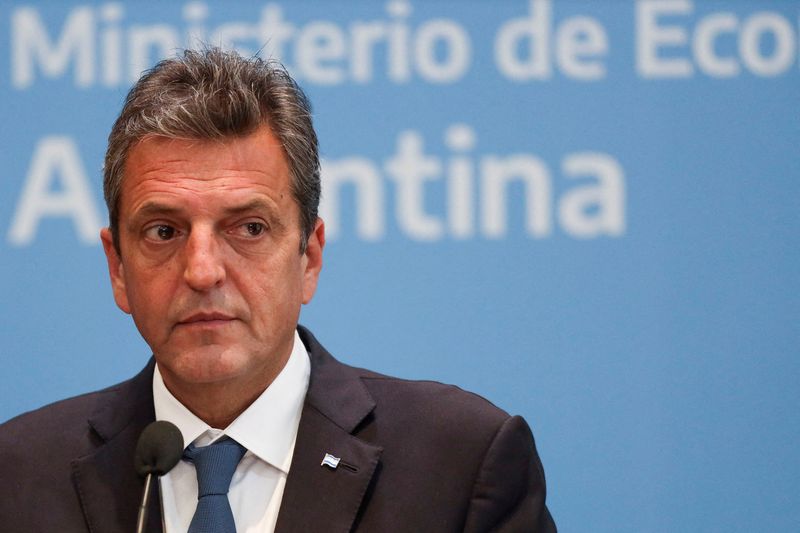By Nicolás Misculin and Horacio Soria
BUENOS AIRES (Reuters) - Argentina's pollsters say the Nov. 19 presidential run-off between radical outsider Javier Milei and government economy chief Sergio Massa could go either way, although Milei has a slight advantage.
But they are cautious about making hard predictions on the back of two bruising election surprises.
The election to decide the next president of Argentina, one of the most consequential in a generation, pits Milei, a libertarian economist proposing to dollarize the economy and slash state spending, against the candidate for the Peronists who have dominated politics for decades but are being blamed for triple-digit inflation and a looming recession.
Most of the latest polls show Milei with a slight edge over Massa. However, pollsters Reuters spoke to said it was a "wide open" race and that either candidate could triumph.
"If the elections were today, Milei would win," predicted Shila Vilker, director of consultancy Trespuntozero, whose analysis shows the far-right candidate ahead by a narrow margin.
"But one has to consider what happened in the primary election and in the general election: movements of four or five points in the last week, or even in the last three to four days."
In the first-round vote last month, Massa overturned pre-election estimates to beat Milei by almost seven points. However, Milei has since won the backing of third-place finisher Patricia Bullrich, while a painful shortage of petrol and diesel in early November may weigh on Massa.
A recent poll from Aresco shows Milei with a four-point lead, while another from the University of San Andres showed the libertarian with 40% compared to 34% for Massa. One by Atlas (NYSE:ATCO) Intel (NASDAQ:INTC) poll also gave Milei a narrow lead.
Local pollster Analogias showed Massa ahead - but by less than three points, cut in half from his predicted lead by the same pollster a week earlier.
Key will be winning over middle-ground voters from the first-round losers, especially those of conservative Bullrich, who has publicly backed Milei, but whose coalition is deeply divided. She won nearly 24% of the vote in the first round.
Lautaro Díaz, 35, who intends to vote for Milei, said Bullrich's backing had made the "possibility of (Milei) winning more real."
Massa, meanwhile, has looked to win over voters by pledging to protect the generous social welfare schemes that form the backbone of Peronist policymaking. Milei's "chainsaw" plan to cut back the state would put these at jeopardy at a time when many rely on them, he has warned.
"I am going to vote for Massa because I believe that he is today the one with a vision for the country that seems coherent and that responds to the needs of the people," said 21-year-old Matteo Bettini.
Federico Aurelio, head of pollster Aresco, said the race was wide open, with plenty of time for skeptical voters to change their minds.

"There is a very significant proportion of the electorate that is going to look for what they consider the 'lesser evil'," he said, adding that the key would be if voters focused on Milei's volatility or Massa's perceived failure with the economy.
"Whoever can make the vote a referendum on the other one will win," he said. "That is the paradox of this election."